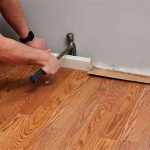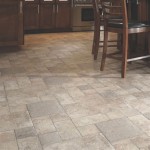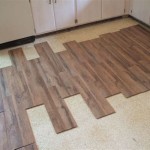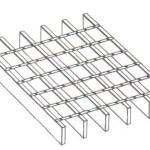Linoleum Flooring That Looks Like Tile: A Comprehensive Guide
Linoleum flooring has gained popularity in recent years as a stylish and durable alternative to traditional tile. With its realistic tile-like designs, linoleum offers the aesthetic appeal of ceramic or porcelain tile without the associated drawbacks. In this comprehensive guide, we delve into the essential aspects of linoleum flooring that mimics the look of tile, providing insights to help you make informed decisions for your flooring project.
Composition and Durability
Linoleum flooring is crafted from natural and renewable materials, including linseed oil, ground cork dust, wood flour, and natural pigments. This composition makes it an environmentally friendly choice and contributes to its exceptional durability. Linoleum is highly resistant to wear, moisture, and staining, making it suitable for high-traffic areas such as kitchens, bathrooms, and entryways.
Tile Designs and Options
Linoleum flooring offers a wide range of tile designs, allowing you to achieve the desired aesthetic for your space. From classic square and rectangular tiles to intricate patterns resembling ceramic or stone tiles, there are options available to complement any décor. Additionally, linoleum tiles come in various sizes, enabling you to create custom layouts and add visual interest to your flooring.
Installation and Maintenance
Linoleum flooring is relatively easy to install, thanks to its flexible nature. It can be laid directly over existing subfloors using adhesives or loose-lay methods. Regular cleaning with a damp mop and occasional waxing or buffing is sufficient to maintain its appearance and extend its lifespan.
Water Resistance and Comfort
Linoleum flooring is highly water-resistant, making it an excellent choice for moisture-prone areas such as bathrooms and kitchens. Its cushioned surface provides a comfortable feel underfoot, reducing fatigue and enhancing the overall comfort of your space.
Environmental Benefits
As mentioned earlier, linoleum flooring is made from natural and renewable materials. It does not emit harmful VOCs (volatile organic compounds) during manufacturing or use, making it a healthy and environmentally conscious choice. The durability of linoleum also contributes to its sustainability, as it can last for decades with proper maintenance.
Considerations and Conclusion
While linoleum flooring that looks like tile offers numerous benefits, it is essential to note its potential drawbacks. Linoleum can be sensitive to extreme temperatures, and heavy furniture may leave indentations on its surface. However, with proper care and maintenance, these issues can be minimized. Overall, linoleum flooring is a versatile and durable option that provides the aesthetic appeal of tile with the added advantages of comfort, ease of maintenance, and environmental friendliness.

Vinyl Stone Flooring Guide Lx Hausys

Tile Natural Stone Look Luxury Vinyl Flooring Floor Boys

Stunning Vinyl Flooring That Resembles Ceramic Tile

Not Your Father S Vinyl Floor

Tile Effect Vinyl Flooring Lino Factory Direct

Luxury Vinyl Plank Tile Slaughterbeck Floors Campbell Ca

I Recently Put In Stone Slate Look Luxury Vinyl Tiles My Bathroom

Vinyl Tile Flooring Guide What You Should Know Inc

Getting A Hex Tile Look With Vinyl Newlywoodwards

Vinyl Flooring Pros And Cons Forbes Home
Related Posts








